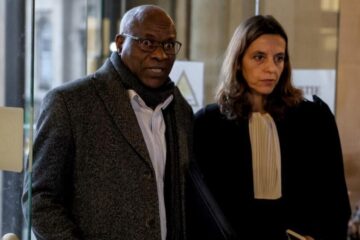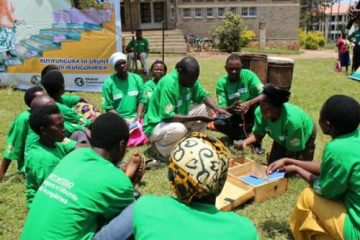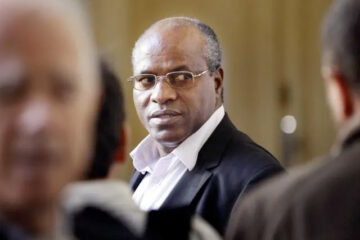Despite being 85 years old and having served in nearly every era of Uganda’s post-independence politics, General Moses Ali wants back in Parliament. But what many see as a comeback, others are calling a power-hungry move and a glaring symbol of Uganda’s deepening political stagnation.
Ali, a former rebel leader, long-time MP, and ex-Minister in both Idi Amin’s and Yoweri Museveni’s governments, is seeking re-election in Adjumani. His campaign, championed by aide Kenneth Amacha, promises more infrastructure, an upgrade of Adjumani Town Council to municipality status, and better access to government programs. But for many in the Madi sub-region, the General’s latest bid has raised more eyebrows than excitement.
“We respect him, yes. But why can’t he retire with dignity?” asked Margret Joan, a teacher in Adjumani. “At his age, he should be mentoring young leaders, not crowding them out.”
A Symbol of Political Gluttony?
To critics, Moses Ali is not just a veteran, he’s a symbol of Uganda’s refusal to let go of power. Like President Museveni, who has ruled since 1986, Ali has remained close to the center of power for decades, recycling positions, forming alliances, and reinventing himself each time the political tide shifted.
From serving under Amin in the 1970s to returning as Museveni’s loyalist in the 1990s after leading a rebel group, Ali has mastered the art of political survival. But now, as Uganda faces record youth unemployment and declining public trust in institutions, his ambition to return to Parliament is being seen by many as selfish.
“This is not about service anymore. It’s about clinging to power, about status and privilege,” said a university student from Madi, who declined to be named for fear of reprisal. “We are tired of watching the same people rule us for 40 years while the youth are told to wait.”
Generational Suffocation
Uganda is a country where nearly 78% of the population is under 35, yet politics remains dominated by men well past retirement age. Ali’s re-election bid is not an isolated case, it fits into a broader trend of aging leaders sidelining younger voices under the guise of “experience” and “legacy.”
Across Uganda, youth-led movements have been frustrated by the lack of political space. Attempts to challenge old guard figures often lead to harassment, exclusion, or co-optation. Even in local councils, fresh candidates often find themselves competing not with peers, but with figures old enough to be their grandparents.
“Experience should not be an excuse to block progress,” said Gloria Ochan, a local community organizer. “We need leaders who understand the urgency of now, not just who remember the past.”
Politics as a Family Business?
Beyond age, concerns are also growing over the apparent monopolization of politics by a few elite families. Just like President Museveni, whose son Gen. Muhoozi Kainerugaba is positioning himself for power, Moses Ali’s family and close associates are increasingly involved in local and national politics.
Locals fear this may be the beginning of another political dynasty where leadership is inherited, not earned. “What we’re seeing is not just old age clinging to relevance, it’s the tightening grip of political families who think they own our future,” said one opposition-leaning local councilor.
The Bigger Picture
Uganda’s political landscape is increasingly defined by aging leadership, historical nostalgia, and exclusion of the youth majority. While Ali’s supporters say he brings “wisdom and stability,” critics argue that such narratives are used to justify the refusal to step aside.
As campaigns heat up in Adjumani, the real battle may not just be over one parliamentary seat, but over the direction of Uganda’s future: a past that refuses to retire, or a present still struggling to break free.








